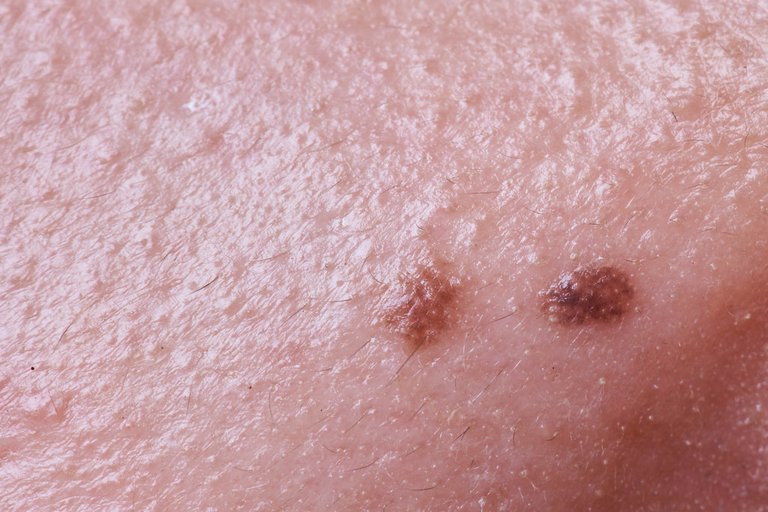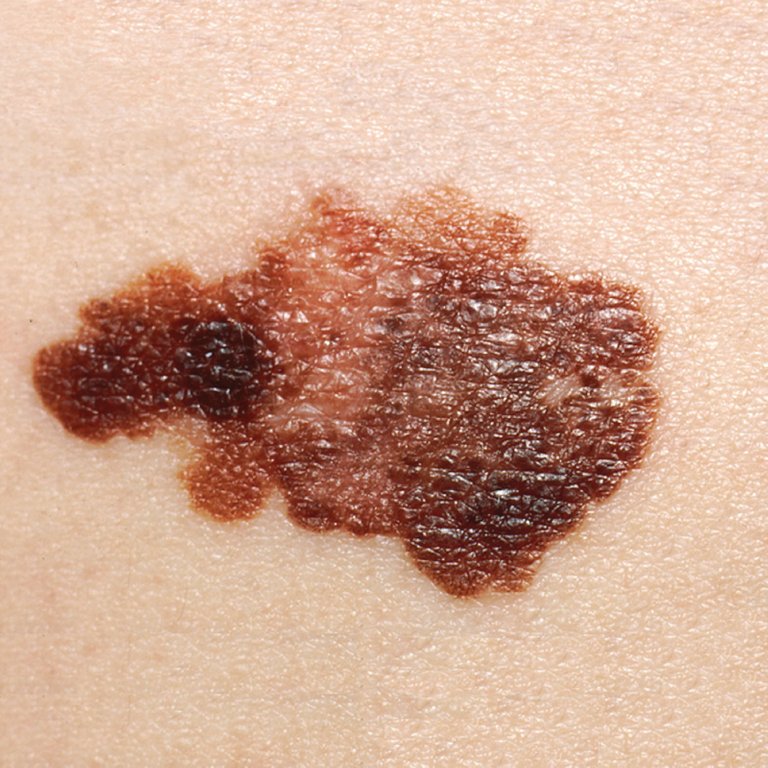I touched on a few less common types of cancer a few posts ago, but as I continued to read more about the topic, I got to understand that, there are other very less common cancer types that we have no idea of. Today, in the same light, I will be sharing on a type of skin cancer that is rare and speaking on that is speaking on Melanoma as a topic.
Melanoma is a skin cancer type that begins in the melanocytes, just before you wonder so much about it, melanocytes are cells that make the pigment responsible for giving color to the skin, this pigment is what we have as melanin.
It is the most invasive cancer of the skin with a solid high risk of death, although, it is a severe care of skin cancer, it is very curable if detected on time.

flickr.com
It is easy for melanoma to kick start its operation on a skin type that is often exposed to ultraviolet light (UV), coming from sunlight or tanning lamps, and beds. The skin on the arms, back, legs, and face is often the most victim, it is rare for the condition to affect the inner part of the body like the throat or the nose, but that doesn't mean it is not a possibility.
The main reason why people have melanomas isn't really clear yet, most of them are exposed to ultraviolet light. People who are over 40 years of age are more at risk.
Around 30 percent of melanomas start with the moles while the rest start with normal skin, paying attention to occurring changes in the skin is highly significant, and while the number of moles you have may be a strong predicting factor for the occurrence of melanoma, majority of melanomas will not start as moles. Melanomas grow fast, and a delay in their treatment may be the difference between life and death.
A typical mole will have the appearance of a uniform color, which may be brown, black, tan or pink but in dark skinned people, a typical mole will likely be black or dark brown. They have a distict border that seperates the mole from surrounding skin, sometimes these moles begin to appear from childhood and in othr occassions may not form until about the age of 40.
Melanomas can be grouped into five stages;
Stage 0 has the melanoma only at the top layer of the skin.
Stage I comes without an evidence of spread, and it it still curable with the help of surgery.
Stage II has features that indicates a high risk of recurrence, but there is no evidence of it's spread.
Stage III could spread to nearby lymph nodes or nearby skin.
While stage IV which happens to be the final stage spread to a more distant lymph nodes or skin that has spread to internal organs.
Possible signals that you may be struggling with melanoma include;
- Unsmooth edges.
- When one half of the skin fails to match with the other.
- Mottled and uneven color, with shades of brown, black, grey, white, or red.
- There is a new spot causing a change in size, color, and shape.

commons.wikimedia.org
Anyone can develop melanoma, but there is an increased risk of developing the disease when;
- There is a family history of melanoma.
- A history of tanning bed use.
- Fair skin, freckles, blond or red hair, and blue eyes.
- Several moles, especially atypical ones
- Exposure to sun including blistering sunburns.
- A weak immune system.
Areas of the body with little or no exposure to sun could also have melanomas, areas like the spaces between the palm and the toes, the scalp or genitals. They are called hidden melanomas bcause they affect those regions where people will most likely fail to check.
Hidden melanomas appears; underneath the nail, inside the body, and even inside the eyes.
The chances of melanoma can be reduced if;
- Sun is avoided during the heat of the day is possible.
- If we get so farmiliar with our skin that we are able to predict changes as soon as possible.
- Avoid tanning lamps and beds as they mmit UV light.
- Put on protective clothing.
- Wear sunscren as much as possible.
Treating melanoma depends on the stage it is;
Metastasectomy is a procedure used to eliminate small bits of melanoma from th organs affected.
Melanoma surgery can be applid at the early stage of infection. It is a simple procedure that can be carried out, in an office. A dermatologist will numb the skin with a local anesthetic, and eliminate the melanoma and margins.
Targeted cancer therapy is the use of medication to attack specific cancer cells, this targeted approach affects cancer cells, leaving the healthy cells untouched.
Lymohadenectomy is used when melanoma has spread, it may require the removal of lymoh nodes close to the primary diagnostic site, this can prevent the spread of infection to other parts of the body.
Immunotherapy is used to stimulate the immune system that can help to fight the existing cancer.
Radiation therapy involves treatmnt with high energy rays to attack cancer cells and shrink tumors.
Conclusion.
One of the types of cancers that can be treated is Melanoma cancer, but it is only possible when it is detected and treated on time. Becoming sensitive to our body and skin to detect swift changes and report to the doctor as soon as possible.
References.
https://www.mayoclinic.org/diseases-conditions/melanoma/symptoms-causes/syc-20374884
https://www.nhs.uk/conditions/melanoma-skin-cancer/symptoms/
https://my.clevelandclinic.org/health/diseases/14391-melanoma
https://www.cancer.org/cancer/types/melanoma-skin-cancer/about/what-is-melanoma.html

Hi, I am Tobi a writer, speaker, relationship blogger, and lover of good music. I love making friends and learning from people. If you want to hear me speak on relationships and general life issues, you can find my YouTube channel where you can watch any episode for free, please do not forget to subscribe, friends. I sincerely appreciate every love I get from here, Kindly do well to keep them coming.
